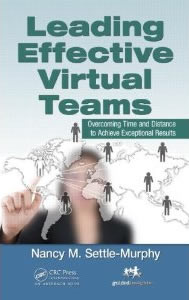Setting false deadlines has become as chronic as breaking them, according to a recent article in the Wall Street Journal. Managers might get away with this practice once or twice, but when team members finally catch on, chances are they won’t fall for it again. And worse, they’re more likely to ignore authentic deadlines when a sense of urgency really does exist. The unhappy result: Team leaders have little credibility or influence over the work of team members, who are more likely to put the work of the team on the back burner, regardless of the perceived importance.
Why the push for false deadlines? In some cases, it might be a matter of lighting a fire under chronic slackers who need an incentive to finally take the work of the team seriously. For some managers, setting an overly ambitious deadline may be a way of trying to establish control over the work of the group when other forms of persuasion and influence seem to be falling short.
Regardless of the reason, crying “wolf” too many times induces unnecessary stress, erodes trust, introduces unnecessary delays and ultimately—can cost a load of money.
Joining me in writing this edition of Communiqué is Karen Bading, principal and founder of Infrasonics Coaching and Consulting. Here we explore how teams can build greater trust, save time and get better work done, by ensuring that agreements are clear, realistic and acted upon. This ability is particularly important when team members work from a distance and need agreements to be more explicit at the outset.
The first point to remember: When a request is made, it is not complete until the receiver actually agrees to do something. Here are some guidelines for getting—or giving—what you bargained for by striking agreements that are explicit, clear, measurable and realistic.
- If you agree to do something by a certain time, make sure you have a plan to fulfill your commitment. Start by restating in writing what you have committed to. Be clear and specific. Avoid saying yes too casually. Many people, especially Americans, want to be liked and want to be seen as a team player. As a result, we have a hard time saying no or making counteroffers that may provide a little needed breathing room. People who say yes to everything without qualification either tend to slip deadlines and thus lose credibility, or struggle to maintain a healthy work life balance. Either way, promising more than you can comfortably deliver is a losing proposition.
- Just say no. Saying “no” without qualification is rare in a corporate setting. When you sign an employment contract or cash your paycheck, you are implicitly agreeing to most workplace demands and requirements. More often, we counteroffer (see below). When you do say no, provide a simple explanation such as “I’m glad you offered me this position, and I must decline at this time because of the travel requirements.” Refrain from defending or explaining beyond what’s required, or you risk opening the door for cajoling, arguing or guilt-tripping.
- Counteroffer a request. This is more common than saying no in an organizational setting. For example, you can respond to a request with: “I can’t fly into China next week for that meeting, but I am willing to participate via phone in the middle of the night my time. Or I can go next month if that makes sense. Will that work for you?” This gives you a way to negotiate a promise you are confident you can reasonably keep. Sometimes a counteroffer includes asking for additional resources to fulfill your part of the bargain, such as people, knowledge, budget, or time.
- Be specific about what people can expect and not expect. If extra help from team members will get the work done, ask for help. When someone counteroffers, make sure s/he is listened to and respected for attempting to negotiate a promise s/he can keep. Some cultures tend to punish people for counteroffering, that is, for modifying a requested action so they can make promises they can keep. These punitive measures deprive teams of the ability to work openly, cooperatively and affectively.
- Commit to respond to a request. Rather than give an immediate answer, especially if it’s important, make a commitment to respond to a request at a specific time in the future. Make sure to get back to the requester by that time to let them know if you can do what they ask. You may need time to speak to your manager, or you may need to shift some priorities or ask for help. Keeping the promise to give someone an answer is as much a matter of your integrity as any other promise you make. When you need time to consider a request (or if you have habitually said yes to everything and work has started to fall through the cracks) make a commitment to respond, but refrain from giving a yes or a no until you have had time to think it through.
- Renegotiate. If you find you cannot keep a promise you have made, let people know as soon as you recognize that fact. This takes some personal awareness of your inability to deliver and the courage to admit that to yourself and others. Renegotiating actually builds trust, while continuously slipping deadlines, even if everybody does it, erodes trust. Suppose a colleague promises to get you some vital information for your presentation due Monday. Come Friday your colleague is nowhere to be found, so you spend the weekend gathering the data yourself. Chances are, you will find it tough to believe another promise this person makes. Leaving someone holding the bag with no warning can do damage to a relationship that cannot be easily undone.
- Establish norms as a team. For example, when responding to requests via email, team members should give any necessary conditions or modifications in writing, and copy any people who have a stake in the outcome. Or, as soon as you know you will be slipping a deadline, agree to renegotiate with whoever will be dependent on your work. Make sure that team members follow the same conventions and that people feel open to acknowledge when they’ve run into roadblocks.
- Recognize cultural differences in terms of establishing agreements. For example, if I don’t make a clear request, the other person doesn’t ever feel s/he has to say no. Some people feel if they don’t ever actually say yes, even if they implied it, then they are not accountable. In certain Asian cultures especially, important requests may be made through intermediaries and you may need to be sensitive to the tone and tempo of the yes to understand when that response is really a no.
Agreements made and kept are keys to getting work done effectively, all the while building and maintaining trusting relationships within and between organizations. Reflect on how you make and keep agreements. Are there some opportunities to make clearer agreements? Are there opportunities to be more consistent in keeping your promises or renegotiating? What would you do with the found time and energy if you didn’t have to worry about people doing what they said they would, when they said they would do it? Starting with yourself and your immediate colleagues, apply these practices and notice the difference.




